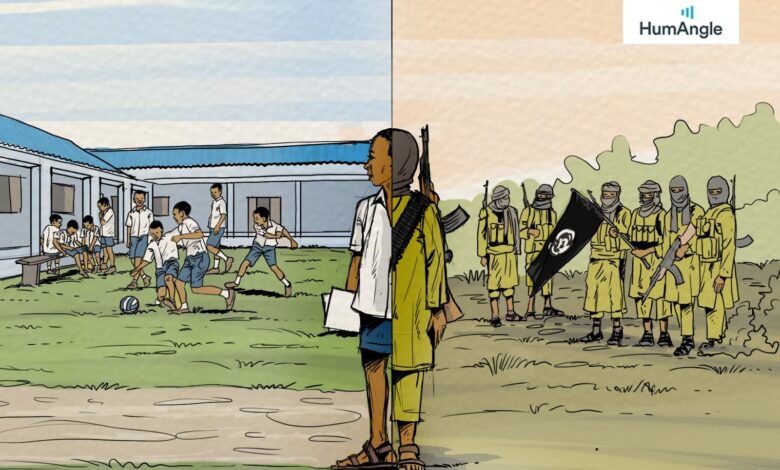What Nigeria Can Learn From Rwanda’s DDR, Transitional Justice Processes
An expert on countering violent extremism explains that the concepts of disarmament, demobilisation, and reintegration (DDR) and transitional justice is an approach not isolated to Nigeria, adding that Rwanda, with committed leadership, has created comprehensive processes that led to accountability at all levels.

Dr Fatima Akilu, a psychologist and expert on countering violent extremism, says Nigeria’s transitional justice programmes, including those focusing on disarmament, demobilisation and reintegration (DDR) for former insurgents, should be implemented in a controlled manner with a central agency. The agency will have complete responsibility and exercise oversight that will allow for all members of the society to be engaged.
Dr Akilu made this suggestion while discussing ‘Growing Insecurity and Mental Health in Nigeria’ on a Twitter space organised by HumAngle on Saturday, April 9. She stated that a framework of disengagement that is based on justice and fairness, which includes transitional justice mechanisms, and ‘truth and reconciliation’ is absent in Nigeria.
She said the concepts of DDR and transitional justice are not peculiar to Nigeria, noting that Rwanda, with willful and committed leadership, has created comprehensive processes that led to accountability at all levels.
Over the years, DDR and transitional justice have been utilised as a post-conflict tool for peacekeeping and peacebuilding efforts around the world. These programmes generally reassure former combatants that they will be reintegrated, and not punished.
The conflict in Rwanda
In Rwanda, the majority Hutu group and the minority Tutsi have been described to be complicated, socially constructed ethnic identities. Both groups speak the same language, share the same culture, practise the same religion, live together, and often intermarry.
But Belgian colonialists treated Hutu and Tutsi as separate races, viewing the Tutsis as racially superior and favoured the Tutsi elite who had governed the pre-colonial kingdom. However, three years before Rwanda’s independence, the Belgians suddenly sided with the Hutu majority and allowed violence against the Tutsis, which drove approximately 400,000 Tutsis into exile.
Eventually, a group of Tutsi exiles formed a rebel group, the Rwandan Patriotic Front (RPF), which invaded Rwanda in 1990, and the conflict continued until a 1993 peace deal was agreed upon. But on the night of April 6, 1994, a plane carrying the then-President Juvenal Habyarimana, and the Burundian president — both Hutus — was shot down, killing everyone on board.
This led to what is described as the world’s fastest genocide where at least half a million Tutsis, as well as thousands of Hutus, were slaughtered.
DDR efforts in Rwanda
According to the International Centre for Transitional Justice (ICTJ), the Rwandan Demobilisation and Reintegration Commission (RDRC) implemented DDR in two major phases, one covering the period from 1997 to 2001, and the other from 2002 to 2008.
In the first phase, which lasted from Sept. 1997 to March 2001, the DDR process involved five military forces including the mostly Tutsi rebel force that defeated the genocidal regime.
It also featured the infiltrators (abacagenzi) involved in the 1997 and 2001 insurgencies in northwest Rwanda and the Rwandan Hutu rebels in the Democratic Republic of Congo (DRC), who have fought under various political and military labels.
The combatants selected for demobilisation dropped their weapons before being transported to demobilisation centres, where they spent two weeks. Combatants generally received medical counselling, training and sensitisation, and the first instalments of their transitional safety net allowance.
In the second phase, the international community created a regional program called the Multi-Country Demobilisation and Reintegration Program (MDRP). The country set up the Rwandan Demobilisation and Reintegration Program (RDRP) with a new budget, and ex-combatants, including women, went through sensitisation training in solidarity camps. The training covered Rwandan history, civic education, national unity and reconciliation, micro-financing and public health (particularly HIV/AIDS).
While reintegrating ex-combatants, reinsertion support was given to them upon graduating from ingando (reeducation and indoctrination camps). The reinsertion support consisted of approximately $100 and basic household supplies.
DDR processes progress more than transitional justice
On the other hand, as a consequence of prioritising retributive justice over restorative justice, the material needs of survivors have not been met by the transitional regime in Rwanda.
At first, transitional justice processes included creating 11,000 community courts known as Gacaca to try lower-level genocide suspects. Nearly 800,000 Rwandans — one-fifth of the adult population — have been accused before these courts.
National courts also prosecuted higher-ranking officials implicated in the genocide though the quality of justice in these trials was relatively poor. Even the International Criminal Tribunal for Rwanda (ICTR) has been faulted for an absence of a clear prosecutorial strategy, poor case management, and courtroom control by the judges.
Survivors find that their demands for reparations go unheeded while generous demobilisation packages are funded for ex-combatants.
Despite the lack of a compensation fund, the Gacaca still provides reparations to genocide survivors such as restitution for their loss of property.
Support Our Journalism
There are millions of ordinary people affected by conflict in Africa whose stories are missing in the mainstream media. HumAngle is determined to tell those challenging and under-reported stories, hoping that the people impacted by these conflicts will find the safety and security they deserve.
To ensure that we continue to provide public service coverage, we have a small favour to ask you. We want you to be part of our journalistic endeavour by contributing a token to us.
Your donation will further promote a robust, free, and independent media.
Donate HereStay Closer To The Stories That Matter




